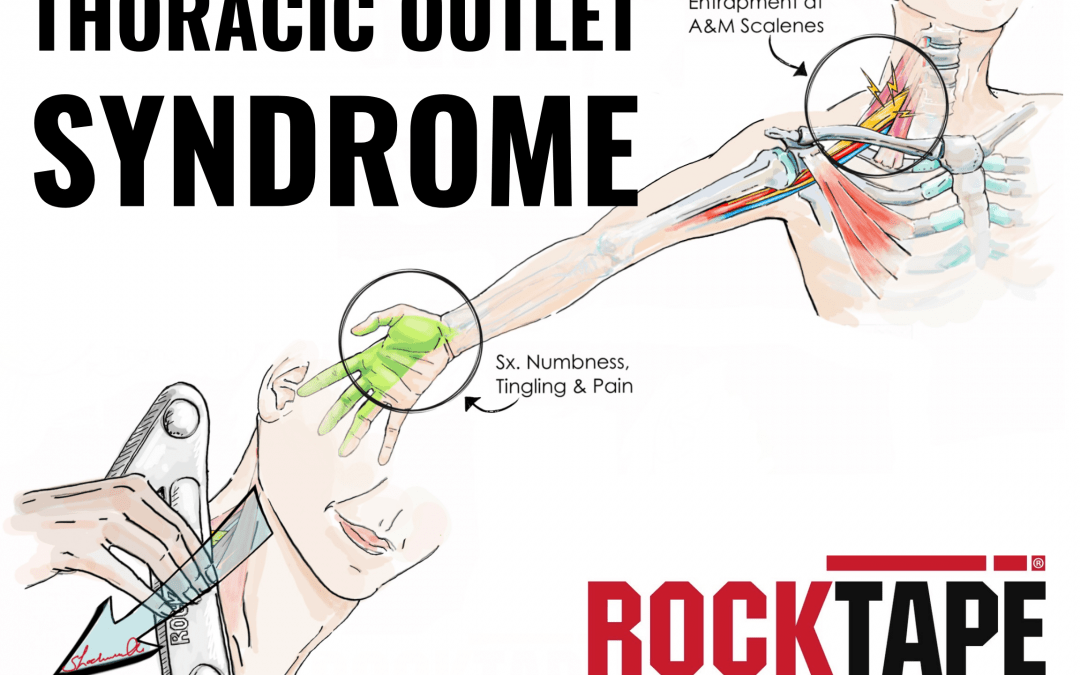Artwork by Stephanie Lochmueller, RMT, FST3, CFSC, CHN, MPS @sloch_holistic @sloch.anatomyart
Thoracic Outlet Syndrome (TOS) is a condition that may cause numbing, tingling, and weakness in the arm, elbow, and hand. Typically, this condition can be treated with various physical therapies, in addition to instrumented assisted soft tissue mobilization (IASTM).
The RockBlades Mohawk may assist in creating fascial glide in areas that can become stuck or lack the fascial mobility that can cause nerve and blood vessel entrapment, e.g. Thoracic Outlet Syndrome. While there are many ways to treat TOS, using RockBlades and similar IASTM tools along common entrapment sites such as the anterior and lateral scalenes and the pec minor can alleviate poor fascial mobility and increase the “slide and glide factor” needs for tissue relationships.
In contrast to popular belief that IASTM ought to be with heavy pressure to produce an outcome, RockTape FMTemphasizes that tissue depth with a tool can be used with light to moderate pressure; introducing a painful stimulus is often counterproductive. Rock Blades, specifically the Mohawk with the rubber sleeve attachment, creates substantial tissue purchase of fascia and skin. This concept is used to generate a tissue shearing effect that aids in skin, fascial mobility.
Remember to use extra gentle pressure while practicing IASTM in this area to reduce inflammation in tight muscles that can push on nerve and vascular structures.
Are you a manual therapy practitioner interested in saving your hands and upgrading your skillset?
The RockTape Functional Movement Training (FMT) continuing education series offers a variety of IASTM courses for healthcare and fitness professionals with all levels of experience with soft tissue techniques.
Learn more about the RockBlades Mohawk in FMT Blades Advanced, in-person, virtually, or on-demand. Can you join? Do you help people move? Then yes! FMT courses are intended for healthcare professionals, therapists and trainers – and CEUs may be offered for DC, ATC, PT, OT, LMT, DVM and more.
*Not clinically proven for all injuries.
